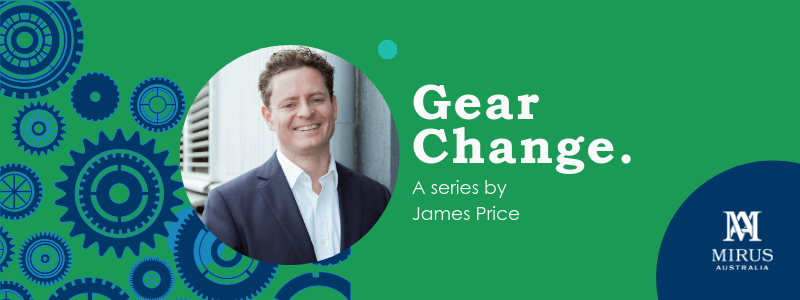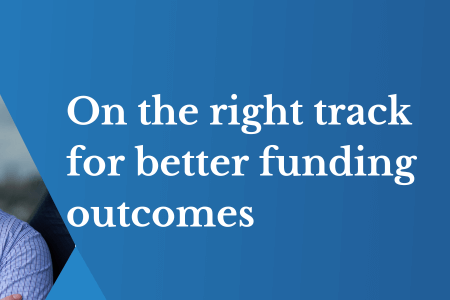Since when did “Hope” become a strategy?
September 10, 2019 | Aged Care Management

Gear Change. A series by James Price. Fast information for when your time is poor, and you know the best time for change is now.
This series provides insight and advice with a focus on improving productivity and sustainability for aged care providers in Australia. A series that you can squeeze in during your lunch hour and then share the ideas with the rest of your team in the afternoon.
“Please put your hand up if you have a share trading strategy?”
It was 1996 and I was attending an investment seminar where the presenter asked the audience this very question. I did not put my hand up, but I watched as many in the room did.
“OK, keep your hand up if you can take a holiday, share with me your investment strategy and let me trade like you?”
I think only one person left their hand held high at this point. The point was a good one and one that was well made:
“If you don’t have a plan you can pass to me then you don’t have a strategy, you are trading on gut feel and luck”.
Sadly, this is true in many facets of our lives and we trade our experience for an actual plan. This may be fine in isolated instances, however if we are building deliberate, planned and sustainable processes then unfortunately it doesn’t cut the mustard. **
Every truly successful process is deliberate and planned, even if after a while it becomes second nature and often invisible to many. Take the example of the last flight you took. So much happens that we don’t see, but it is happening. After all, who would board a plane knowing that the flight crew didn’t do a pre-flight check? Gut feel and luck isn’t cutting ANY mustard here. I for one would probably find an excuse to get off the plane!
Whilst not as dramatic, we see the same in business processes. In aged care we are faced with an enormous amount of complexity every day. Aside for the complexity of providing the best care, there’s a lot happening behind the scenes to ensure a business is sustainable. It wasn’t always this complex but today we need to be across funding, occupancy and workforce processes like never seen before.
Where we see this challenge with our clients, often the issue is around funding especially resident assessments. Residents are assessed as a ‘voluntary’ when we see needs change and a mandatory when there is a specific business rule triggered. In almost every case we see, if voluntary assessments lapse, 3 months later we see a decline in revenue. The most disappointing reason we hear is that voluntary assessments tapered off because we didn’t have staff coverage to manage them.
If this is a concern in your business or if you need better visibility to determine what to do next, then we should talk; our tools and support services take the guesswork away because we think you’ll agree, hope just isn’t a strategy. Please contact us here.
** To suffice; to be good or effective enough
James Price, co-founder at Mirus Australia is a self-confessed petrol head. That is a person who is overly reliant on the use of their car and enjoys making a noise with it. James frequently shares a car analogy to explain a methodology, complex problem or an idea that has formed and with the goal of #makingagedcarebetter
More from the Gear Change series by James Price:
Risk + quality + for the love of spreadsheets by James Price
Biometrics + do we need them? by James Price


